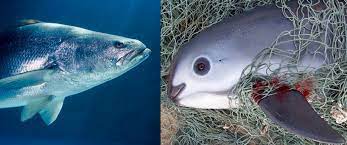There are almost 8 billion of us. We humans account for more than 1/3rd of the total mass of all mammals on Earth. The ‘livestock’ we raise to provide food for ourselves make up about 60% of the mammals (cows, pigs, sheep, goats) and 70% of the birds (with chickens being the majority). You’d then have to account for our companion animals and so forth, until you get down to the remainder – which would be everything living in the wild. That now makes up only 4%! Doesn’t seem right does it, or even possible? But that’s the reality for wildlife on our planet in the 2020’s. 4% of the total mass of all mammals on Earth.
In my view, that makes our remaining wildlife infinitely precious and worthy of our protection. Really, it makes every individual wild animal still in existence quite valuable – not only to preserve the health and integrity of the biomes we all depend on, but also to protect the diversity, beauty and richness of our world.
I hope there will one day be an Apollo 8-like moment for our species, to bring this reality into sharp focus. When the spacecraft’s orbit of the moon took it around the farside of that satellite world for the first time, and humankind got its first look at the Earth from that distance, we all saw a precious jewel, blue against the vast blackness of space. Our environmental movement, still in its infancy, really got a jumpstart in that moment. For humankind, there could be no mistaking the significance of that image.
Today, as we continue to harvest other species from the wild to serve our purposes – everything from food to the pet trade – or we just slaughter them because they’ve simply gotten in the way, do we truly recognize the significance of what we’re doing?
Because there are so many of us, with this planet truly run by humans for the benefit of humans, everyone else has been largely pushed aside. Granted that over time our attitudes have changed significantly, and almost always for the better, but now it’s a question of whether it’s happening fast enough. Further, it only takes a small percentage of us believing in highly improbable things to have a significant impact on another species. A belief in the nonexistent medicinal properties of the totoaba’s swim bladder has meant disaster for that fish, now an endangered species, as well as for the vaquita porpoise, the last few of which are destined to die in illegal gill nets set to catch the totoaba.
Other examples of this abound. Rhino horns. Black bear gall bladders. Pangolin scales. You can no doubt think of many, many others. Given our dominance, as well as our sheer numbers, it only takes a very tiny percentage of us believing in utter nonsense, and another species will be in real trouble.
The challenges this presents us with are formidable and daunting. What this speaks to in terms of our own species’ future is difficult to say. I don’t claim to have all the answers, though some are more apparent than others. Here in Canada for example, we have to ask ourselves why we still allow our governments to issue licenses to trophy hunters to kill polar bears – a species already under enormous stress from climate change. We can fight for laws to end trophy hunting, or to end harvesting for gall bladders, and so forth. There are of course many good people currently working hard to do just that. But in many other situations, the issues are considerably more complex.
In less developed countries, even when anti-poaching laws are already in place, sometimes even backed by shoot-to-kill orders, solutions can be highly elusive. We need innovative new ways to get resources and know-how to the people that need them to provide effective enforcement. How we effect this kind of international cooperation is hard to say, and I don’t think any easy answers will present themselves. But again, it only takes a few of us believing highly improbable things, and the carnage will continue. So it’s imperative that we do our very best.
What I want you to take away from this post is simply this. We’ve come to a point in our collective relationship to the natural world where every wild animal left is valuable, and so precious to our long-term future. Recognizing this, perhaps we’ll be incented to develop the tools and methods to protect them. Or at least enough of them that we can protect ourselves. We also need to understand that even in a best case scenario, we will lose a large part of our biodiversity over the next couple of decades, and every time we fail to protect any given species, we’ll have let our world become less diverse and more impoverished.
For The Orca’s Voice,
Anna, Canadian Cetacean Alliance



Leave a Reply